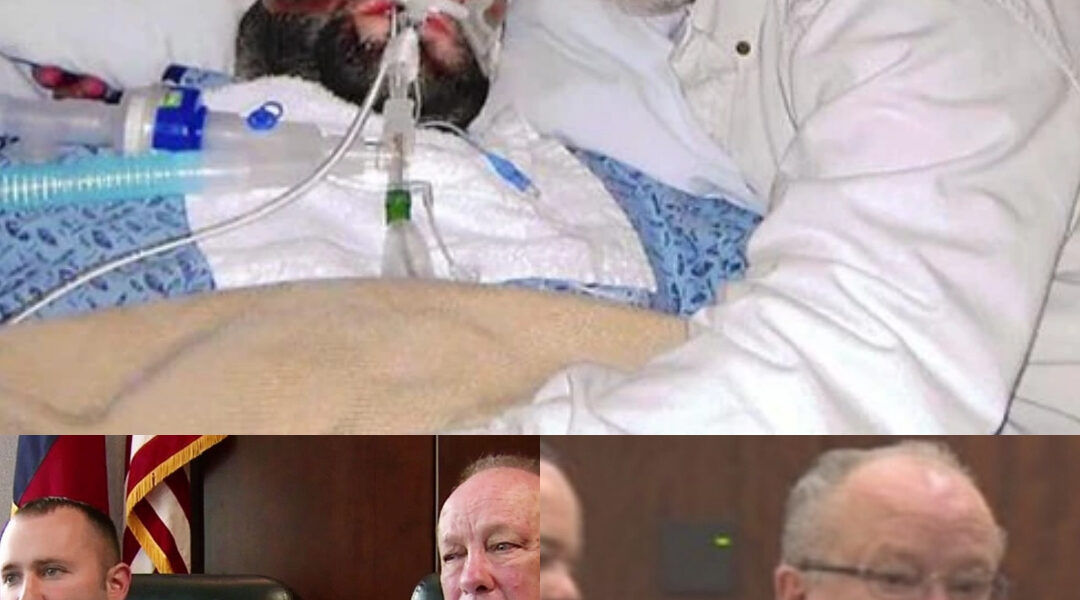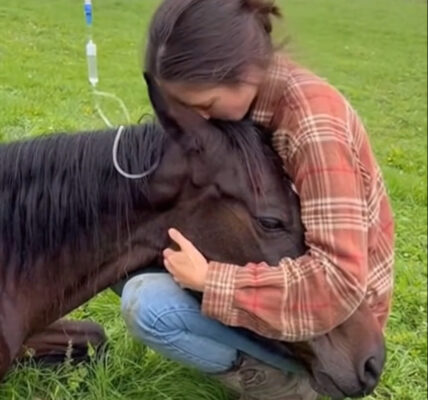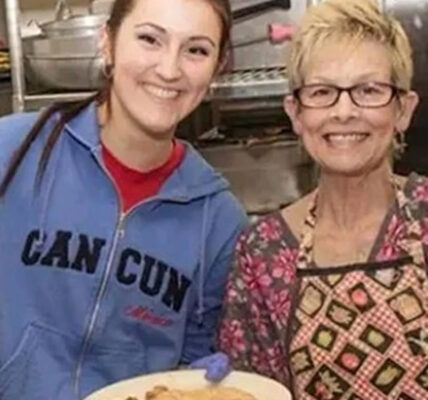The hallway smelled of antiseptic and sorrow. Machines hummed steadily, their cold precision indifferent to the chaos in George Pickering’s heart.
He stood at the edge of his son’s hospital bed, watching the monitors flash and blink, each sound a cruel reminder of what he was about to lose.
George Pickering III — “Georgie,” as everyone called him — was only twenty-seven. Strong, funny, restless. The kind of young man who filled every room with energy. But now, his chest rose and fell only because a machine made it so. His eyes were closed, his skin pale, and the doctors said there was no hope.
“He’s gone,” one of them told him gently. “There’s no brain activity. I’m sorry.”
But George Pickering Sr. couldn’t believe it. He couldn’t make himself let go.

The Long Goodbye
For days, he sat in that room, clutching his son’s hand. Friends came and went. His ex-wife cried quietly in a corner. Nurses moved in and out, adjusting tubes, whispering in professional tones. But George stayed.
He studied every movement, every flicker of his son’s eyelids, every faint squeeze of his hand — and swore he felt something.
“He moved,” he whispered once.
The nurse gave him a sad smile. “It’s just a reflex.”
But George wasn’t convinced. He had known his boy since the first day he came into the world, red-faced and wailing. He had watched him take his first steps, teach him to fish, help him fix his first car. Fathers know things. They feel them.
And this father felt something that science couldn’t measure.
The Moment Everything Broke

When the doctors told the family it was time to withdraw life support, George felt something inside him snap.
They spoke calmly about organ donation, about the “selfless legacy” Georgie could leave behind. They talked about timetables, consent forms, and medical coordination.
George barely heard them. His pulse roared in his ears. His hands trembled.
“You can’t take him,” he said.
“Mr. Pickering,” the doctor replied gently, “we’ve done all we can.”
But George didn’t move. Didn’t blink. Didn’t accept.
And then, in a desperate act that would change everything, he went home, opened his old gun safe, and took out his pistol. He didn’t think about the consequences — only that they were about to take his son from him, and he wasn’t going to let it happen.
The Standoff
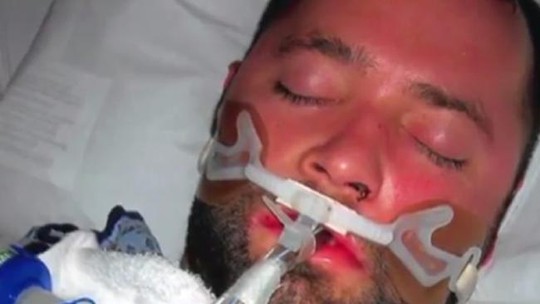
When he walked back into Tomball Regional Medical Center, the staff froze. Nurses whispered. A security guard’s eyes widened.
George pointed the gun at the floor. “Nobody is going to touch him,” he said. “Not until I say so.”
Within minutes, the hospital went into lockdown. SWAT was called. Sirens echoed outside. Police negotiators arrived, pleading through the loudspeaker.
But George wasn’t listening to them. He was talking to his son.
“Georgie,” he whispered, his voice cracking. “If you can hear me, give me a sign. Just one sign, son.”
His hand shook as he clutched his boy’s. “They don’t believe in you. But I do.”
The room was heavy with silence — the kind that can break a man’s soul.
And then, softly, unbelievably, George felt it.
A squeeze. Faint, but real.
His breath caught. “Do it again, son,” he whispered, tears streaming down his face. “Please.”
Another squeeze.
“Dear God,” he gasped, “you’re still there.”
Hope in a Hostage Room
Outside the door, police waited for orders. Inside, a father wept over his son’s hand. He lowered the gun, his strength crumbling beneath the weight of love and fear.
When officers finally entered, they found George sitting beside the bed, the pistol lying on the floor.
“He’s alive,” he said through tears. “My boy’s alive.”
They didn’t believe him — not at first. But the doctors ran another test, then another.
And what they saw defied everything they thought they knew.
George Pickering III was responding. His brain activity — previously flat — flickered to life. Slowly, like dawn breaking after a long, dark night, the impossible became real.
The Price of Defiance
George was arrested that night. The headlines called him a “gunman,” a “hostage-taker.” Few knew the truth — that he hadn’t aimed at anyone, hadn’t wanted to hurt a soul. He had just been a father who refused to give up.
From his jail cell, he asked only one thing: “How’s my son?”
Weeks passed. Then months.
And one morning, the call came. George Pickering III had woken up.
Not just opened his eyes — woken up. He recognized his mother. He could speak. He could remember. The doctors called it “a miracle.”
For George, it was confirmation of what his heart had known all along.
The Reunion
When father and son finally saw each other again, no words were needed.
George III reached out and took his father’s hand — the same hand that had refused to let go when the world said he should.
“You saved me,” he whispered.
“No,” his father replied softly. “You saved yourself. I just made sure they gave you the chance.”
The younger Pickering smiled weakly. “They called you crazy, didn’t they?”
His father chuckled through tears. “They still do.”
But both knew — in that quiet hospital room — that love had done what medicine could not. It had waited long enough for a miracle to arrive.
Forgiveness and Freedom
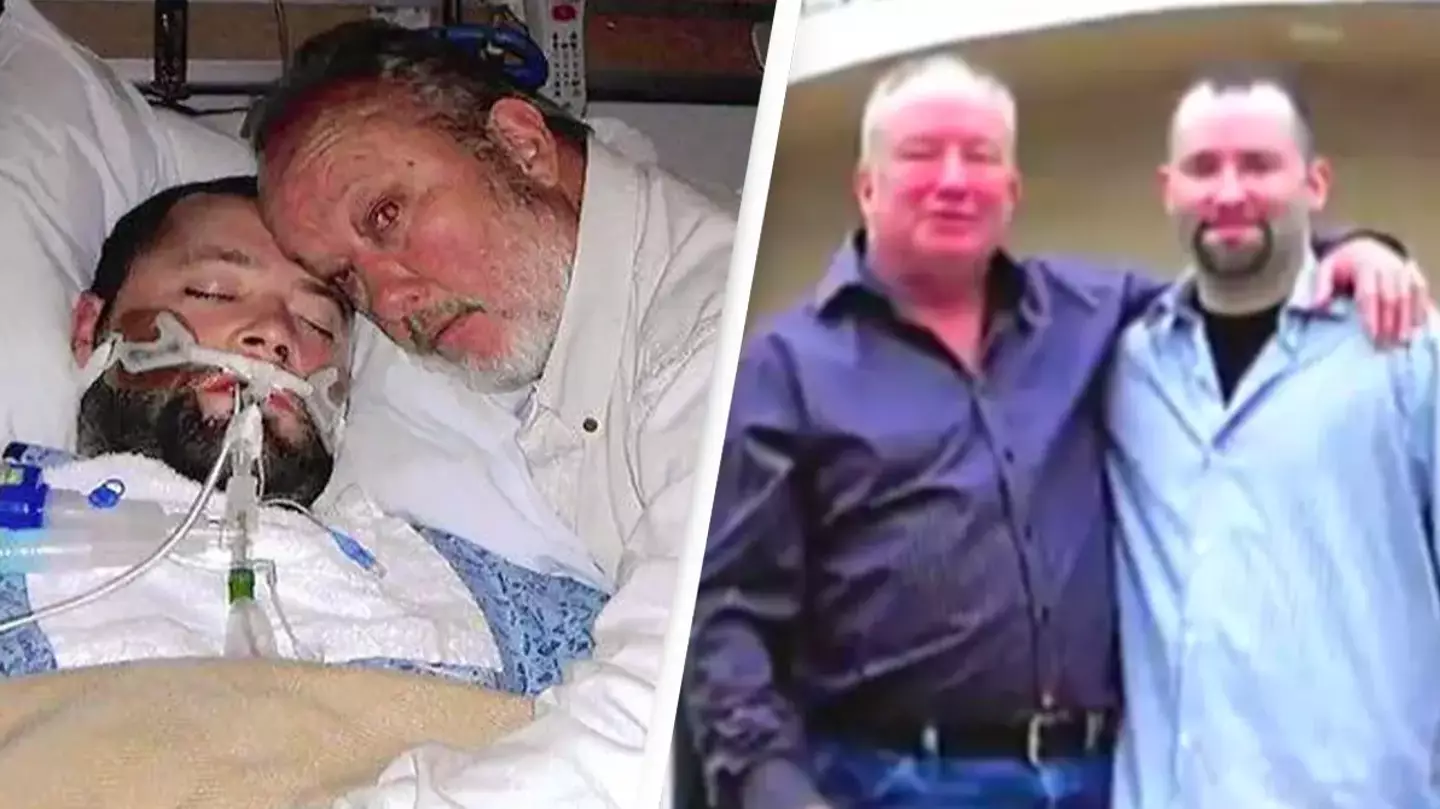
When George Sr. went to court, even the prosecutors struggled to condemn him. The judge read the reports, saw the miracle, and realized this wasn’t a crime of violence — it was an act of love born from despair.
The charge was reduced. George served a short sentence, then walked free.
And when reporters asked if he regretted what he’d done, he simply said, “No father should have to do what I did. But I’d do it again. Because he’s my son.”
Standing beside him, George III nodded. “He’s my hero. When everyone else gave up on me, my dad believed.”
A Story That Moved the World
Their story spread far beyond Texas. People saw in it the raw, messy truth of love — the kind that isn’t polite or perfect, but fierce, stubborn, and willing to stand against the world.
Some called George Sr. reckless. Others called him brave. But to those who understood, he was simply a father — one who saw life where others saw death, one who trusted his heart more than the machines around him.
Because sometimes, faith looks like madness.
Sometimes, hope carries a gun into a hospital room.
And sometimes, love is the only thing that refuses to die.
Epilogue
Years later, the Pickering men still visit the same hospital — not as patients, but as living proof of what belief can do. Nurses who were there that night still tear up when they see them.
George III now works to raise awareness about stroke recovery. His father, older and softer now, prefers to stay out of the spotlight. But when people recognize him, he smiles politely and says, “I just did what any father would’ve done.”
And in that simple sentence lives a truth that will outlast them both —
that a father’s love, even when flawed and desperate, can reach beyond logic, beyond fear, beyond death itself —
and bring a son back home.
